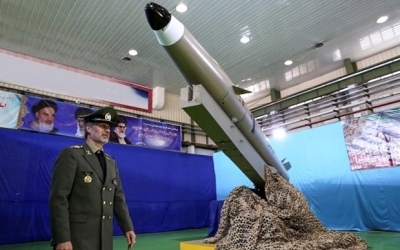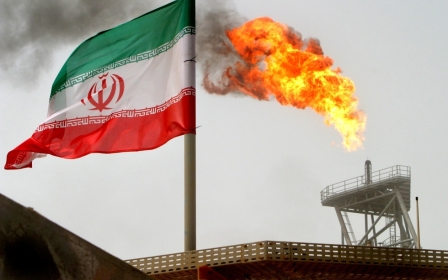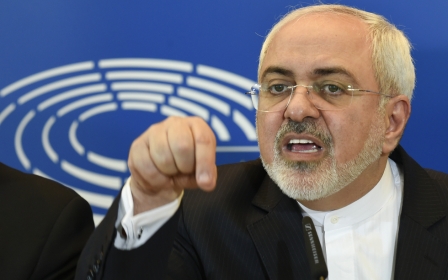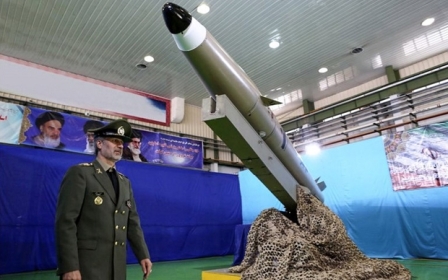US faces uphill battle to push European allies to adopt harsher line on Iran
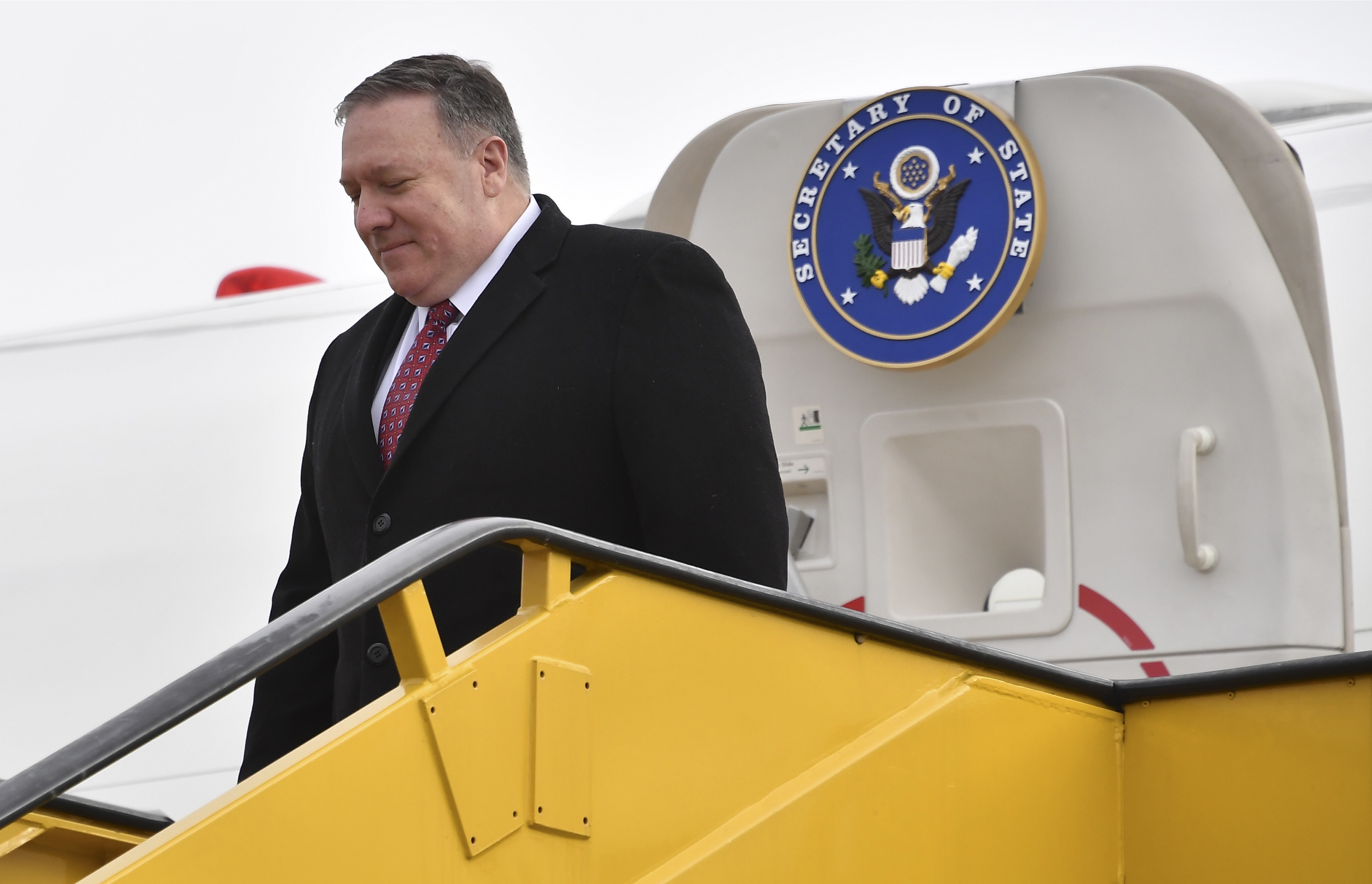
A meeting in Warsaw later this week will be a make-or-break moment in ongoing efforts by Donald Trump's administration to line up Washington's allies against Tehran, according to analysts and former US officials.
The experts say the two-day conference, set for 13-14 February in the Polish capital, will showcase just how effective the White House has been at bringing together its Israeli, Arab and European allies.
One analyst told Middle East Eye that he would be looking for "handshake moments" between Israeli Prime Minister Benjamin Netanyahu and attendees from Arab states including Saudi Arabia, the United Arab Emirates and Bahrain.
But that's easier said than done, said Daniel Fried, former US ambassador to Poland.
"The US and the EU just have a different take on Iran," Fried told Middle East Eye.
New MEE newsletter: Jerusalem Dispatch
Sign up to get the latest insights and analysis on Israel-Palestine, alongside Turkey Unpacked and other MEE newsletters
A hardline stance on Iran has been a key component of Trump's foreign policy to date, but the US president's administration has largely failed to get others on board.
Already, several European nations have skirted re-imposed US sanctions on Tehran's key industries and European leaders have repeatedly voiced their disappointment over Trump's decision to withdraw from a 2015 nuclear deal with Iran.
Fried said the US's pullout from that multilateral accord may make it even more difficult for US Vice-President Mike Pence and US Secretary of State Mike Pompeo to exert their influence on European countries.
Both Pence and Pompeo will attend the conference, which is being co-hosted by the US and the Polish government, which backs Brussels in maintaining the 2015 nuclear deal.
"I'm sorry we went out of the [nuclear deal]," Fried said.
"The question is now how do we manage that without blowing up [the relationship]? I wish Secretary Pompeo and the vice president all the best in building as much of a coalition as is possible under these circumstances."
'The US and the EU just have a different take on Iran'
- Daniel Fried, former US Ambassador to Poland
The gulf between Washington and Brussels has widened in recent weeks, with the creation of a European-backed mechanism - the so-called special purpose vehicle (SPV) - to facilitate non-dollar trade with Iran and circumvent US sanctions.
The SPV, devised chiefly by Britain, France and Germany, aims to keep the nuclear deal alive by enabling Iran to barter oil and gas exports for European Union (EU) goods in transactions that Washington cannot blacklist.
While Tehran has largely adhered to the 2015 deal and not ramped up uranium enrichment, the US says the mechanism gives Iran the means to invest in ballistic missiles, cyber warfare and proxy forces such as Hezbollah in Lebanon and Yemen’s Houthi rebels.
US officials have also pointed to Dutch, French and Danish allegations that Iranian spies plotted and carried out assassinations in Europe as further reasons for Brussels to get behind its "maximum pressure" campaign on Iran.
For Behnam Ben Taleblu, an analyst at the Foundation for Defense of Democracies, a right-wing think tank, the meetings in Poland are a chance for trans-Atlantic powers to publicly air their differences and hash out a common strategy on what both sides view as an Iranian threat.
"The Warsaw conference is not a bludgeon for the US to wield against Tehran. It’s a way to iron out a lowest common denominator position that gets the Europeans on board," Taleblu told MEE.
Many notable no-shows
US officials have said 80 countries were invited to the conference and that about 40 will attend.
On Monday, Polish Foreign Minister Jacek Czaputowicz said that Saudi Arabia, the United Arab Emirates, Bahrain, Yemen, Jordan, Kuwait, Morocco and Oman were expected to send ministers to the meeting while Egypt and Tunisia would likely send vice-ministers.
Israeli Prime Minister Benjamin Netanyahu will be there and as it stands, he appears to be the most senior attendee.
However, UN Secretary-General Antonio Guterres and Federica Mogherini, the EU's foreign policy chief, have said they are skipping the event. Russia also won't be attending, while some European states will send envoys, but not foreign ministers.
While the US insists that the summit is not aimed at Iran, the topics on the agenda - illicit finance, missile development and proliferation, cybersecurity, energy sector threats, proxy groups and maritime security - closely mirror Washington's repeated criticisms of Tehran.
Iranian Foreign Minister Mohammad Javad Zarif said the US was forced to backtrack on its initial plan of an "anti-Iran circus" because the event was not drawing a big crowd.
Despite this, a senior White House administration official said the US is "not disappointed with the turnout".
Broadening out the discussions, Trump's son-in-law and senior White House adviser, Jared Kushner, is planning to travel to Warsaw to field questions about his plan for peace between Israelis and Palestinians, which has seen repeated delays.
"It’s a case of who shows up that tells you how successful it's been," Sigurd Neubauer, an independent analyst, told MEE.
'Handshake moments' for Netanyahu?
Iran and Middle East peace are top agenda items in Israeli foreign policy, but Netanyahu is also battling corruption allegations and campaigning for re-election at home.
Ahead of national polls on 9 April, Israeli billboard advertisements play up the Likud leader's statesmanship credentials, showcasing him alongside Trump and a slogan that he is "in a different league" than his rivals.
'The US, Israel and [the] Arab world are clearly in the minority on how to handle Iran, but the US is - for now - the most important player'
- Jonathan Cristol, Adelphi University
In recent months, Gulf countries such as the United Arab Emirates and Bahrain have been increasingly willing to make public what is understood to be their increasing security cooperation with Israel over Iran.
In November, the Israeli, Emirati and Bahraini ambassadors to Washington sat together at Joint Base Anacostia as the US envoy on Iran, Brian Hook, presented evidence of missile parts that Tehran had allegedly supplied to Houthi rebels in Yemen.
Israeli ministers have also made several recent trips to Gulf countries, including Miri Regev, who made an official visit to the UAE in October, and Netanyahu himself, who made a surprise stop in Muscat that same month to meet with Omani leader Sultan Qaboos.
Against that backdrop, Neubauer said he would be watching for "handshake moments" between Netanyahu and officials from Gulf nations in Warsaw.
That would be the "fruition" of Trump’s push for Israeli-Arab unity and lay a "strong foundation" for forcing Iran to rehash the 2015 deal, he said.
Jonathan Cristol, a scholar at Adelphi University in New York state, raised doubts that would happen, however, saying he is "deeply sceptical about the Gulf Arab-Israel fantasy rapprochement".
But that doesn't mean Iran has much to cheer for as it watches the conference unfold in Poland, he said.
"The US, Israel and [the] Arab world are clearly in the minority on how to handle Iran," Cristol said, "but the US is - for now - the most important player."
Middle East Eye delivers independent and unrivalled coverage and analysis of the Middle East, North Africa and beyond. To learn more about republishing this content and the associated fees, please fill out this form. More about MEE can be found here.


